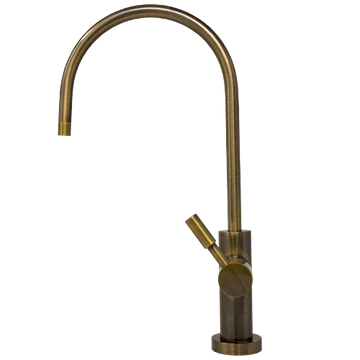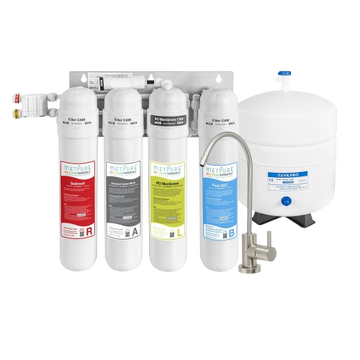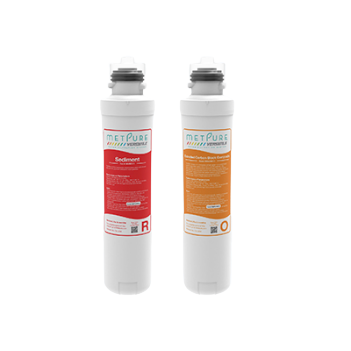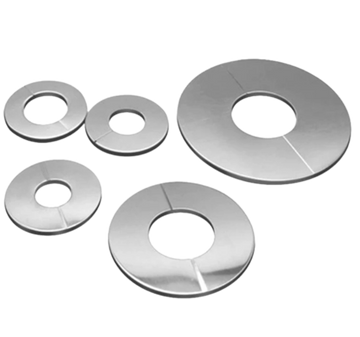Safe and quality drinking water is essential for human health. However, due to increasing environmental pollution, the quality of our water resources has become a question. As a result, many municipal water supplies treat water with chlorine or other chemicals to disinfect it of harmful bacteria and viruses.
These filters may purify water of pathogens; however, chemicals like chlorine can leave a bad taste and smell and potentially cause health risks if left in water for a long period of time. Thus, many families and individuals are seeking ways to purify the tap water reaching their households. Investing in a chlorine filter is an effective and efficient solution to getting chlorine-free water.
These filters reduce potential health risks from prolonged exposure to and dissolving of chlorine and improve the taste and smell of water. Many options are available in the market for chlorine filters, which can make it confusing for consumers to choose the right filter.
What is a Water Filter?
A water filter removes impurities and contaminants from water, and this process is called water filtration. Water filters have various types designed to address various kinds of contaminants and water needs of consumers, such as household needs, drinking or specific usage needs, or industrial needs. These filters use materials such as ceramic cartridges, activated carbon, UV sterilization, or reverse osmosis to create a blocking or eliminating mechanism for harmful substances. They can eliminate contaminants such as viruses, bacteria, visible contaminants, chemical or organic compounds, and other harmful impurities to make water healthy, free from pollutants, and safe for drinking, cooking, and other applications.
Municipalities treat water with chlorine or other chemicals to kill major bacteria and eliminate health risks. However, these are very basic methods and affect water quality in the long run, causing a need for additional water filtration for people to access safe and clean water for daily use, including consumption and other uses. Water filters like the whole house water filtration system use a multi-stage process to ensure comprehensive coverage, targeting multiple contaminants to ensure completely safe water.
What is a Chlorine Water Filter?
Many water filters that target specific kinds of contaminants use specific filtration mechanisms specifically designed to remove or eliminate a specific contaminant more than others. Several water filter types can effectively remove chlorine from water. Here are the most common ones:
- Carbon filters: Activated carbon filters effectively eliminate chlorine compounds from water. They adsorb chlorine particles through adherence to activated carbon. Carbon filters are used within the mechanisms of various filters, including a pitcher filter, RO faucet filter, and undersink filter.
- Reverse osmosis (RO) systems: The reverse osmosis system uses a semi-permeable membrane to effectively remove contaminants, including chlorine. It can be installed under the sink and removes a wide variety of contaminants.
- KDF filters: Kinetic Degradation Fluxion filters use copper-zinc alloy to remove heavy metals and chemicals like chlorine from water and produce high-purity results.
- Activated alumina filters: These filters use activated alumina that removes impurities like chlorine. They are specifically effective at removing chloramines, chlorine compounds used in water treatment.
- Ultraviolet (UV) filters: UV filters are an effective dechlorination method. They use high-intensity, broad-spectrum UV rays that eliminate free chlorine, chloramines, and other chemicals that may be contaminating the water. They operate between 10 and 400 mm by triggering photochemical reactions with UV lights, which break down chlorine into hydrochloric acid, ensuring enhanced water quality without altering its chemical composition.
Each filter has its benefits and limitations but is designed to suit consumers’ specific needs. Many filters use a combination of one or more of the filtration mechanisms discussed above to provide broader coverage. The following discusses seven of the best water filters that are the most efficient at removing chlorine from water.
-
Metpure 4-Stage Reverse Osmosis Water Filtration System (MV4-ROGB) with Faucet, 50 GPD RO Membrane
It is an activated carbon and ion exchange filter that uses a four-stage filtration process to provide the best quality. It comes with a 3.2-gallon tank and can easily handle this amount of water. It removes elements like mercury, lead, and chloroforms and uses 100% lead-free faucets to provide high-quality and purified water for drinking. It is an easy-to-install and affordable choice, ideal for households. Buy now!
-
Brita Standard Metro Water Pitcher
It’s an activated carbon filter that can filter up to five cups at a time. It reduces the taste and smell of chlorine in water and removes metals like mercury and copper. With its compatible design, affordability, and effective results, it is ideal for drinking water.
-
Aquasana 3-Stage Max Flow Under Sink Water Filter System
It has a three-stage filtration mechanism: activated carbon, catalytic carbon, and an ion-exchange filter. It can handle up to 0.5 gallons of water per minute and efficiently removes 99% of 77 contaminants, including chlorine, lead, and other pharmaceuticals. The excellent-tasting water it produces makes it suitable for kitchen use, including drinking and cooking.
-
Berkey Water Filter
It uses the black Berkey purification elements to purify water. It comes in various models that can handle up to 1.5 to 6 gallons of water. It effectively removes chlorine, bacteria, viruses, heavy metals, and many other contaminants. Its various models make it suitable for different needs and situations, like for small or large families, outdoor activities, and emergency needs.
-
APEC Top Tier 5-Stage Ultra Safe Reverse Osmosis Drinking Water Filter System
It uses the reverse osmosis membrane, carbon block, and sediment filter for a five-stage filtration process and can handle up to 75 gallons per day. It removes up to 99% of the chemical contaminants, including fluoride, arsenic, lead, and specifically chlorine. It provides the highest level of purified water for drinking and other uses.
-
CuZn UC-200 Under Counter Water Filter
It is an activated carbon and KDF-55 filter that can handle up to 50,000 gallons. It effectively reduces chlorine and heavy metals. It requires minimal maintenance and makes it an ideal choice for busy households.
-
Aquagear Water Filter Pitcher
It is an activated carbon and ion-exchange filter in the size of a pitcher or jug, which can purify up to 8 cups at a time. It removes chlorine, lead, and fluoride to an effective extent and produces clean and excellent-tasting water.










